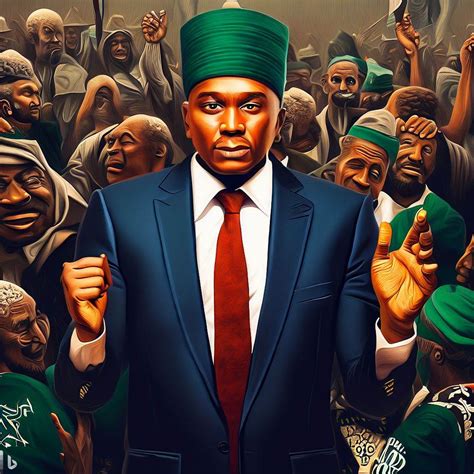Introduction
Nigeria, the most populous nation in Africa, has a vibrant and complex political landscape characterized by a multitude of political parties. These parties play a pivotal role in shaping the nation’s political discourse and electoral outcomes. In this article, we delve into the diverse landscape of Nigerian political parties, examining their ideologies, platforms, and historical significance.

Historical Evolution of Political Parties in Nigeria
The history of political parties in Nigeria can be traced back to the colonial era. The first political party, the National Council of Nigeria and the Cameroons (NCNC), was founded in 1944 by Nnamdi Azikiwe. Other notable parties that emerged during this period included the Action Group (AG) led by Obafemi Awolowo and the Northern People’s Congress (NPC) headed by Ahmadu Bello.
After Nigeria gained independence in 1960, the political landscape underwent significant changes. The NPC dominated the First Republic, which was marked by regional rivalries and political instability. The military intervened in 1966, leading to the suspension of political activities.
Following a period of military rule, a new constitution was adopted in 1979, which re-established the multiparty system. The National Party of Nigeria (NPN), the Unity Party of Nigeria (UPN), the Great Nigeria People’s Party (GNPP), and the Nigerian People’s Party (NPP) emerged as the dominant parties during the Second Republic.
Current Political Landscape
The current political landscape in Nigeria is dominated by two major parties: the All Progressives Congress (APC) and the Peoples Democratic Party (PDP). The APC is the ruling party, with Muhammadu Buhari as President.
All Progressives Congress (APC)
The APC was formed in 2013 as a merger of several opposition parties. It is a center-right party characterized by a focus on economic liberalism, anti-corruption, and national unity.
Peoples Democratic Party (PDP)
The PDP is the main opposition party, having ruled Nigeria from 1999 to 2015. It is a center-left party known for its advocacy of social democracy, inclusion, and national development.
Other Political Parties
Besides the two major parties, there are numerous other political parties in Nigeria, including:
- African Democratic Congress (ADC)
- African Democratic Party (ADP)
- All Progressives Grand Alliance (APGA)
- Labour Party (LP)
- New Nigeria People’s Party (NNPP)
Key Ideological Differences
The various political parties in Nigeria have distinct ideologies and platforms.
Table 1: Key Ideological Differences
| Party | Ideology | Key Policies |
|---|---|---|
| All Progressives Congress (APC) | Center-right | Economic liberalism, anti-corruption, national unity |
| Peoples Democratic Party (PDP) | Center-left | Social democracy, inclusion, national development |
| African Democratic Congress (ADC) | Centrist | Transparency, accountability, economic growth |
| Labour Party (LP) | Socialist | Workers’ rights, social welfare, environmental protection |
| New Nigeria People’s Party (NNPP) | Progressive | Economic development, political reforms, youth empowerment |
Electoral Performance
The electoral performance of political parties in Nigeria has varied over the years. The APC and PDP have consistently dominated both the presidential and parliamentary elections. In the 2019 general elections, the APC won the presidency and obtained the majority of seats in the National Assembly.
Table 2: Electoral Performance of Major Parties
| Year | President | Ruling Party | Seats in National Assembly |
|---|---|---|---|
| 2019 | Muhammadu Buhari (APC) | APC | 223 (APC) |
| 2015 | Muhammadu Buhari (APC) | APC | 215 (APC) |
| 2011 | Goodluck Jonathan (PDP) | PDP | 203 (PDP) |
| 2007 | Umaru Yar’Adua (PDP) | PDP | 262 (PDP) |
Challenges and Prospects
Nigerian political parties face several challenges, including:
- Internal Crises: Internal divisions and factionalism have plagued many political parties, leading to instability and weakened electoral performance.
- Electoral Fraud: Allegations of electoral fraud and manipulation have undermined public trust in the electoral process.
- Lack of Inclusion: Political parties have been criticized for failing to adequately represent the interests of women, youth, and marginalized groups.
Despite these challenges, there is optimism for the future of political parties in Nigeria. The increasing awareness of democratic principles and the growing participation of citizens in the electoral process suggest a positive outlook for the political landscape.
Conclusion
Nigerian political parties play a crucial role in the nation’s political system. Their ideologies, platforms, and electoral performance shape the political discourse and determine the direction of the country. While challenges remain, the commitment to democracy and the growing civic engagement among Nigerians provide hope for a more vibrant and inclusive political future.
